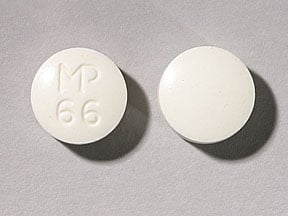
Quinidine Gluconate ER Coupons & Savings Card – Discount Prices from $216.48
Quinidine is a medication used to treat and prevent various types of irregular heartbeats, such as atrial fibrillation, atrial flutter, and ventricular arrhythmias. By blocking sodium channels, quinidine reduces abnormal electrical signals in the heart, which helps in managing irregular heart rhythms. While it significantly improves the ability to engage in daily activities by decreasing the frequency of irregular heartbeats, it may not entirely eliminate them. During treatment with quinidine, your doctor might also prescribe medications like anticoagulants (e.g., warfarin) or beta blockers (e.g., metoprolol) to reduce the risk of blood clots and help control your heart rate. Always consult with your healthcare provider before starting any medication to ensure it is safe and appropriate for your condition.
Our coupons are free to use. Before paying, show the pharmacist your Quinidine Gluconate ER savings card to get your free discount. Use our filters below to edit the prescription box to match your needs. The Quinidine Gluconate ER prices will update based on your prescription needs. Above our Quinidine Gluconate ER coupons, you can change your location to see pharmacy prices and costs in other areas. We're here to help you buy Quinidine Gluconate ER at the lowest price with our prescription discount card.
My prescription
Edit
324MG, Quinidine Gluconate ER (90 Tablet Extended Releases)
Select pharmacy

CVS
$241.99
COUPON PRICE
Walgreens
$216.48
COUPON PRICE
Albertsons
$430.24
COUPON PRICE
Walmart
$632.94
COUPON PRICEQuinidine Gluconate ER savings card
Show this card to your pharmacist
Walgreens
$216.48
BIN
ID
PCN
GRP
015995
LHKPW902615
GDC
DR33
Powered by
Quinidine is a medication used to treat and prevent various types of irregular heartbeats, such as atrial fibrillation, atrial flutter, and ventricular arrhythmias. By blocking sodium channels, quinidine reduces abnormal electrical signals in the heart, which helps in managing irregular heart rhythms. While it significantly improves the ability to engage in daily activities by decreasing the frequency of irregular heartbeats, it may not entirely eliminate them. During treatment with quinidine, your doctor might also prescribe medications like anticoagulants (e.g., warfarin) or beta blockers (e.g., metoprolol) to reduce the risk of blood clots and help control your heart rate. Always consult with your healthcare provider before starting any medication to ensure it is safe and appropriate for your condition.
Our coupons are free to use. Before paying, show the pharmacist your Quinidine Gluconate ER savings card to get your free discount. Use our filters below to edit the prescription box to match your needs. The Quinidine Gluconate ER prices will update based on your prescription needs. Above our Quinidine Gluconate ER coupons, you can change your location to see pharmacy prices and costs in other areas. We're here to help you buy Quinidine Gluconate ER at the lowest price with our prescription discount card.
More prescriptions for ventricular arrhythmia
coupons from$26.04Save 48%
coupons from$6.74Save 90%
coupons from$26.04Save 48%
coupons from$172.32Save 65%
coupons from$249.96Save 60%
coupons from$591.39Save 73%
coupons from$66.15Save 38%
coupons from$6.74Save 90%
More prescriptions for ventricular arrhythmia
Amiodarone Save 48%coupons from $26.04
Sorine Save 90%coupons from $6.74
Pacerone Save 48%coupons from $26.04
Norpace Save 65%coupons from $172.32
Norpace Cr Save 60%coupons from $249.96
Sotylize Save 73%coupons from $591.39
Acebutolol Save 38%coupons from $66.15
Betapace Save 90%coupons from $6.74
Quinidine Gluconate ER dosage forms
Use our Quinidine Gluconate ER 324MG coupon with prices from $241.99 for 90 Tablet Extended Releases. You can also use our Quinidine Gluconate ER 324MG coupon with prices from $266.84 for 100 Tablet Extended Releases.
Dosage Quantity Price from Per unit 324MG 90 Tablet Extended Releases $241.99 $2.69 324MG 100 Tablet Extended Releases $266.84 $2.67
| Dosage | Quantity | Price from | Per unit |
|---|---|---|---|
| 324MG | 90 Tablet Extended Releases | $241.99 | $2.69 |
| 324MG | 100 Tablet Extended Releases | $266.84 | $2.67 |
